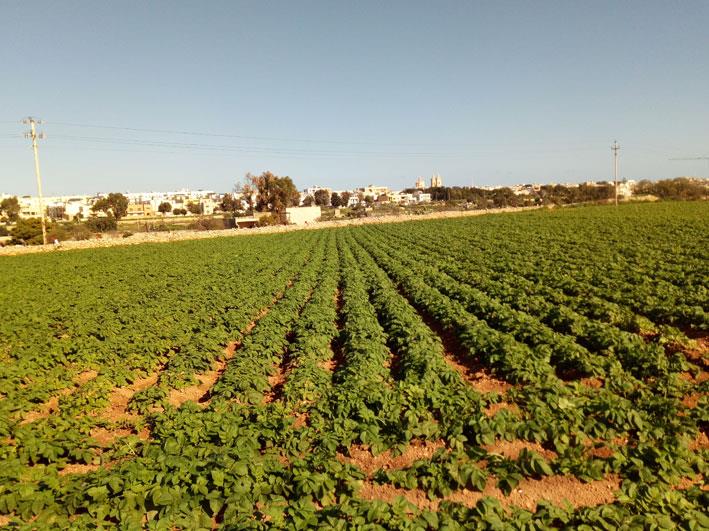As spring is set to start Thursday, many are joyful and eager for sunnier weather and clearer skies, as this last Maltese winter was a cold, damp and extremely wet one. A particular storm, which had strong wind and heavy rain wrecked damage all over the island, cancelled the yearly Malta Marathon and had made international headlines.
The storm also caused havoc in the farmers’ fields, estimating damages of more than €50,000 as they discovered their enterprise literally blown away by the wind. The Malta Independent met up with Malcolm Borg, head of the Centre for Agriculture at MCAST, also the founder of the farmer’s lobby group, Ghaqda Bdiewa Attivi, to discuss the true damages of this winter’s weather and how truly the farmer is at the mercy of the weather forecast.

“The farmer is fully aware that he is at the mercy of nature, as it part of the package of their business” said Borg. He explained that it is a difficult career, as there are numerous variables to contend with, such as weather, climate change problems, the market and also the fact that farmers are not insured. “A farmer can go to bed one evening and wake up to find all his work destroyed due to bad weather. This leads to full-time farmers contemplating whether the job is even worth it in the end as they need to have an income to raise their families.” He recounted how many farmers cried seeing how thousands of euros and months of planning were destroyed overnight.
When asked whether the farmers will be compensated, he said that so far there is no information as to any form of compensation for the farmer’s losses. He said that some farmers only suffered minimum damage and would not apply for the compensation as they are aware that there are others who lost all of their produce and investments. Although farmers are competitive in nature, during hard times they build a sense of “solidarity amongst themselves” and understand the hardships they all face. “It is not only a huge loss for the famer, but also a huge loss with regards to our own national food security, and that we were more dependent on imported produce rather than local.”

Many have highlighted that consumers must be more aware of the important role and skill of farmers who bring food on their plate. “We wish to bridge this gap between farmers and consumers, as for the farmer it is not just a career, but their job also has a lot to do with the food security of the nation.”
Although the damages of the storm are still felt, this winter was a particularly wet one, which after three consecutive dry winters has brought benefit to the crops. “Wheat, broad beans and particular olive trees are all crops which are rain fed, and the more rain the more ground water is stored. The fact that it was very cold also helped particular trees (such as peaches and plum trees) to bear fruit.”
When asked whether farmers predicted a fruitful summer, Borg explained that the mentality of the farmer remains the same throughout the year. “A farmer wakes up before sunrise, works throughout the day, come rain, shine, cold or heat, and then waits for his produce and then to sell it. They simply do their best, and then God and the market will do the rest.”

“In the next 20 years we will not have any full time farmers, simply by seeing what is happening around us currently.” He mentioned that due to a number of factors, many will not see farming as a prospective career in the next few years.
Agriculture, he explained, is a business where you spend a lot of money and are at risk of not earning anything to compensate for all that. It is also extremely time consuming and not a 9 to 5 office job which many youths look towards today.
“We also have limited land resources, and our landscape is suffering and taking a toll; as the population increases and the apartments, so does the demand for food, which makes us become heavily reliant on imported foods.”
He said that at the end of the day, the Maltese farmer is not just a business man, but also must provide for his own needs and support his family. “If we want more people to become involved in agriculture sector, we need to take in stock the issues and that the government manages them before it is too late.”